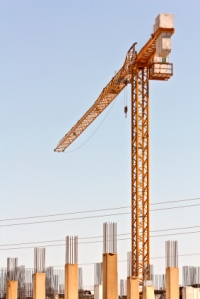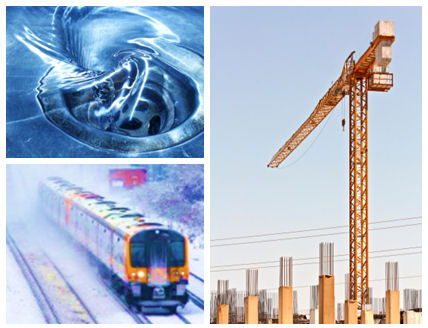I had been thinking for some time about how I could pull the themes of this blog together, as they recur with increasing frequency in people that I coach and train, both in personal performance and in organisations.
Christmas gave me the opportunity to see this variety of positive and negative people at close range and in close succession. Christmas brings many of us together in an unusual and often an acute way, with all the expectations that we and others have. At this time, all those positive and negative relationships can rise to the surface in an exaggerated but telling way.
For example, Christmas Day with people who we may never wish to see the rest of the year, those Christmas cards and who sent, who didn’t and who just sent emails with a ‘charity’ donation; unwanted, unsuitable and unexpected Christmas presents; invitations to parties with people you wouldn’t normally talk to or those disparate year-end bonuses that often prove very divisive to effective team performance.
Perhaps the inevitable company parties with people who have made other people’s lives hell the previous 364 days, performance reviews that are often totally unrelated to performance and more to whether your boss likes you or not. And of course the constant and predictable Christmas ‘Boasts in the Post’; those infamous year-end letters from long-lost relatives and friends who often sound so superior and all with over-achieving children and hundreds of exceptional friends.
So the scene is set for an intense analysis of the types of people we encounter in our everyday lives and who often get so close to us that we develop a dissonance or break in our attitudes to our work and our life. And my theory is that information is power and the power here is the ability to do something about them. And hence this blog.
Drains
 Drains are those people who drain us of energy, money, time, ideas, emotions and spirit. Those that we invest a lot of time with, perhaps listening to their endless stories, their braggings or their difficulties. Those people who take up all our energy and give little or nothing in return. They may even drain us of money or simply take up so much of our time.
Drains are those people who drain us of energy, money, time, ideas, emotions and spirit. Those that we invest a lot of time with, perhaps listening to their endless stories, their braggings or their difficulties. Those people who take up all our energy and give little or nothing in return. They may even drain us of money or simply take up so much of our time.
Those colleagues who we share ideas with, only to see them presented as theirs at the next team meeting. Or the bosses that take some, many or all the ideas from their teams, present them as their own and then get and desperately clutch hold of the individual praise.
And sometimes people simply just drain you from their own position of ‘stuckness’ – perhaps they are too scared to make that decision, that sales call, that report or to develop their business, whilst at the same time blaming or being envious of others’ successes. They cling hold of you, fearful and at the same time you stop moving on.
They come at us in a variety of ways and in equal numbers, either knowingly and unknowingly. And often, with little or no self-awareness. What drains you may not drain me, but it is a reality for many people and the pinch or pain manifests itself in different ways – as sickness or absenteeism at work, as high staff turnover, employee disengagement and conflict in the workplace. At home it manifests itself as anxiety, stress, anger, guilt, shame and even depression.
Of course, as Eleanor Roosevelt once said, ‘No-one can make you feel inferior without your consent’ or the Roman philosopher Epictetus who stated, ‘People are not disturbed by events but by the view they hold about them’, so it is our cognitions or beliefs that facilitate our behaviours. However, even if we do have ultimate control of our own cognitions, our responses can become well-established habits. But, whilst avoidance is not a brilliant long-term strategy as we do need to face our demons ultimately, it serves well as a pro-active strategy or temporarily as a reactive strategy.
These personalities at work can prove even more difficult to practice avoidance with, as we often have to work with them. But there are some helpful strategies that can be used to develop an effective ‘Mindset’ and that inevitably improves performance. The strategy is to be aware of these types of people, who they are, and how to identify their negative behaviours early on and deal with them.
Sometimes it can be an age before we realise what is going on. But for me, there is only one place for these types and that is ‘down the drain’ with or without explanation. These types usually don’t want an explanation – they are often not self-reflective and so will not see the reasons for your concerns. But once you realise what is happening then be decisive, incisive and make the break. Psychological survival is the key. Strategies in previous blogs look at how you can deal with your cognitions about draining and toxic people and future blogs will look at how you can refine your ‘Mindset’ and deal with distorted and crooked thinking.
Trains
This type of people can be quite infectious, entertaining and exciting as they steam ahead, dynamic, racing, un-stoppable and they are often attractive personalities with convincing reasons and stories to join them. They can seem full of energy, appear to be going places, always on the right track and going to many places at breakneck speed. 
Initially they can appear articulate, smooth, sophisticated, even seductive and talk a good timetable. They can even seem extremely comfortable to ride with, but over time we discover that these people go so fast, they have no time to look and learn about where they’ve been, they have a one track mind, a one track way of working, as they inch forward on amber signals and ignore red signals, sometimes missing stations they should stop at and then other times going non-stop from one station to the next. The runaway train.
We then realise that the train is going so fast that we can’t get off, that we have missed our station, that the journey isn’t as comfortable as we imagined, that we have ended up in a place we didn’t want to be, with a rail company that we don’t like or no longer suits us or worse still, stationary in a dark tunnel.
With drains and trains, the name of the game for us all is to develop a ‘Radar’ to detect these personalities before they hit, and if they are already with you, then to develop a ‘Mindset’ to handle your exit strategy from the person. This doesn’t necessarily mean developing a paranoid or suspicious approach to all the people you engage with, but to have a healthy concern and awareness.
In business, as well as our own personal lives, it is not the business or situations that ‘go wrong’ but the people themselves. Having a healthy understanding of the situation that we are in and healthy & resourceful ‘Mindset’ strategies to deal with the situation and the people.
Cranes
But another way to survive is to associate with cranes. Yes, those big yellow objects with cables and hooks that move things from place to place, across difficult terrain, across rivers or tall obstacles to higher or more inaccessible places. Are you getting the idea here?
There are people in our lives that lift us up when we are with them, time and time again, and without expectations; unconditionally. Those who are willing to take us to where we need or want to go and are willing to stay the course with us, non-judgmental and positive.
For example, there is no better place for unconditional support and help than our kids, who more often than not love us and support us unconditionally. How often do we listen to them or take THEIR advice? Then there are the people that we remember in our lives who have been pivotal to our growth; teachers, parents, friends & relatives. And in business with colleagues, mentors and those unconditional sharers of information, ideas, opportunities and wealth that we all know. These are the circle of people, close to us who we can trust and depend on, often small in number, who give rather than take, who drive with us rather than in front of us and who help us to grow and grow with us.
So if you haven’t been on a building site for a while, then begin to develop the strategies for identifying the cranes that can help you to get mechanical advantage out of your business, career, lives & dreams. And remember a dream is simply a goal without a date.
Crane personalities can reach far and high, withstand significant loads and certainly have that great word called ‘traction’ – the ability to dig in and pull with power. But remember, choose carefully who you let into the driving seat of the crane and don’t be afraid of asking lots of questions and having high but realistic expectations.
And sometimes you may feel that you want an independent person, an outsider, someone not involved in your circle to help you to develop and grow. Well-trained and accredited coaches are ideal cranes to help you to ‘get from where you are to where you want to be, more easily and efficiently that if you did it alone’. And yes, sometimes, we need to use mechanical advantage to make that move.
Proximity Circle
So, surrounded by Drains, Trains & Cranes, look around at your network and more importantly, your ‘Proximity Circle’, the people close to you at work and in your life. Begin to identify those different personalities and develop strategies, for working with them or exiting their field of influence. Decide who impacts on you, in a negative or positive way and how you plan to deal with them in the next three months.
Never has it been more important to define the people that matter in your work and your life. These days there are lots of internal & external pressures on us all and we need to be fit, not just physically, but psychologically, to take on these challenges.
To understand more about developing your psychological fitness and resilience with coaching and using the new Human Factor Resilience Health-Check, then contact John Aspden at Cognitions on +44 20 8123 7049 or direct on +44 7837 650312
Cognitions. The Power of Partnership
© Cognitions 2012



